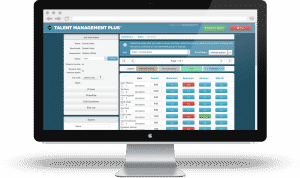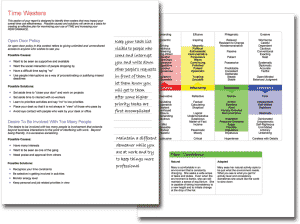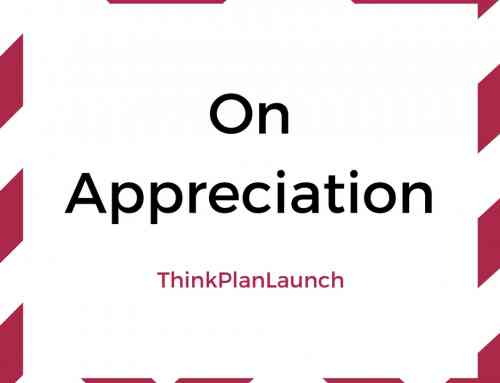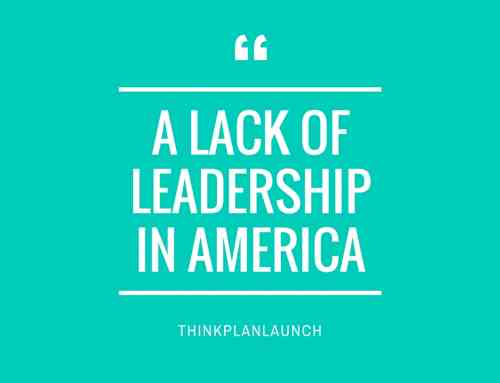Recently our partner organization’s chairman, Bill Bonstetter, wrote a great brief on the importance of personal accountability.
In Bill’s words, “If you hire for one skill and one skill alone, please let it be this: personal accountability.”
Table of Contents
What is personal accountability?
Personal accountability can be defined as taking ownership of one’s thoughts, behaviors, actions, and performance.
Someone who has developed a high level of personal accountability is resilient, resourceful, and honest. Importantly, you can count on them to follow through on the things they say they will do. They also tend to keep and maintain a positive attitude over time.
In the workplace (and really in any role in life) personal accountability is a vital skill to possess, and employers should be very interested in recruiting individuals who are highly accountable. They will get the job done, or at the very least they will put forth their best effort.
Now let’s consider the opposite. When you think about someone with a low level of personal accountability, what do you imagine?
You might imagine a person who does not accept responsibility for their decisions or actions, and who is quick to place blame on others. They may also be at risk to fall into a “victim’s mindset.” When this occurs, a person sees themselves as the victim of the world around them, rather than taking ownership for their life and career outcomes.
What’s it like working with someone with low personal accountability?
We have all worked with people who do not possess high levels of personal accountability. Things that come to mind include missed deadlines, broken promises, and recycled excuses for non-performance.
Even just one person with low personal accountability can reduce morale for the entire group. This impacts group performance and can lead to project delays, breakdowns in communication, individual stress for team members, and sometimes complete project failure.
Worst of all, many times the person with low personal accountability is not capable of recognizing or acknowledging their problem. Without a firm commitment to personal and professional growth, this person will have a tough time admitting to their shortcomings and taking responsibility for improvement.
How do you manage someone with low personal accountability?
You’re probably wondering what should you do if you have someone with low personal accountability on your team. The truth is that these people aren’t the easiest to manage. Luckily, though, there are three important steps you can take to remedy the issue:
- Understand and speak to the individual’s driving forces and communication style.
- Strengthen your hiring processes to screen for personal accountability.
- Invest in personal and professional development for the individual and their team.
Let’s look at these individually now:
1. Understand and speak to the individual’s driving forces and communication style.
John D. Rockefeller once said, “the ability to deal with people is as purchasable a commodity as sugar or coffee – and I will pay more for that ability than for any other under the sun.”
Of course, John D. was a wise man. He understood that business success, as well as individual earnings potential, are entirely reliant on a person’s ability to positively manage their interactions with others.
This is all the more true when dealing with someone with low personal accountability. This type of person will test your limits, after all, so it’s imperative to communicate with them effectively. But what is effective communication?
Well, in many ways we are all the same – we like it when people “get” us, understand us, and speak to our individual needs. When we feel like someone is “on the same page” with us, there is a sense of increased trust and a more meaningful connection.
Because of this, if you can communicate to another person (including someone with low personal accountability) that you understand them, “get” them, and speak to their individual needs, they will want to work for you; they won’t want to disappoint you.
On the other hand, if this type of person doesn’t feel like you understand them or “get” them, and you don’t speak to their needs (but rather focus on your own), you risk turning them off and hindering their motivation. For someone who already has low personal accountability, this can spell disaster.
So, how do you truly get to the bottom of someone’s communication style and driving forces? Our Talent Insights® assessment measures exactly these two factors with incredible precision – and provides deep insights into exactly how to tailor your communication style to others, and speak in a powerful way that motivates them towards mutual goals.
2. Strengthen your hiring processes to screen for personal accountability.

Learn how you can automate your hiring process with TMP.
Your second step is to reduce the odds of hiring someone with low personal accountability in the future. To do this, make the commitment to only hire people with high personal accountability moving forward. This can be accomplished through the use of job benchmarks and validated hiring assessments that specifically screen for personal accountability and other skills.
If you do hire someone with a low or mid-level score in personal accountability, be sure to provide the additional coaching and training required for them to increase it during the onboarding process. It is recommended that you hire an outside facilitator to perform this coaching or training. This reduces the amount of time the employee’s manager must spend conducting the training, and prevents the manager-employee relationship from being affected when constructive criticism is delivered.
3. Invest in personal and professional development for the individual and their team.
Your third step is to make a business decision regarding the employee in question. There are two paths – one is to let the employee go, and the other is to double-down on them by investing in their personal and professional development.
In some cases, there will be no choice but to let an employee go. Most of the time we recommend the latter option, though: reinvesting in your team and its people.

- Communication style and preferences.
- Intrinsic motivators and driving forces.
- Emotional intelligence (EQ).
- Work skills and competencies.
- Personal acumen.
Once you’ve measured a person’s baseline, their strengths and weaknesses can be properly analyzed, and a personalized professional development plan can be created. Through the use of online educational modules, individual coaching, and team workshops, this can be a fun and interactive process that benefits the entire team.
Everybody wins when communication is improved and people understand each other’s needs better.
How can you develop high personal accountability?
To proactively grow your own level of personal accountability, there are several easy steps you can take:
- Only make promises you know you can keep.
- Ask for clarification where duties or expectations aren’t clear.
- Respect other people’s time by showing up a few minutes early.
- Set reminders on your smartphone to remind you of planned tasks or events.
- Be sure you have a deep, internal commitment to following through on your obligations.
- Solicit feedback from peers, friends, and family regarding your strengths and weaknesses in regards to personal accountability. Don’t argue with them, but really listen to what they have to say and suggest.
- Solicit feedback from your co-workers, managers, and clients regarding how you might offer additional value and improve your personal skills.
- Seek out a mentor or coach and work with them one-on-one each week, or each month, to review your accomplishments and areas of improvement regarding personal accountability.

This is the proactive way forward; the “fast-track” to success.
Whether your goal is to increase your individual earnings potential, become more influential when dealing with others (think: superiors, subordinates, clients, vendors, and even family/friends), optimize your productivity, or become an invaluable team member, this represents an accelerated path towards those goals.
In summary, personal accountability is a big deal.
When we talk about individual or team performance, personal accountability will always come up in discussion. It may not always be referred to by name – instead, it may come in the form of compliments or complaints about an individual’s behavior. Regardless, it will almost always be discussed.
This one single skill, or lack thereof, can determine an individual’s ability to work independently, to get along with others, and to follow through on critical assignments. Since it’s such a powerful predictor of personal success, we recommend all employers carefully consider a job candidate’s level of personal accountability before they make the hire.
Furthermore, we recommend all employers invest in the ongoing development of their team members to increase this vital skill. This leads to improvements in their bottom line while simultaneously creating harmonious, effective work environments for their staff.






Someone who has developed a high level of personal accountability is resilient, resourceful, and honest. Importantly, you can count on them to follow through on the things they say they will do. They also tend to keep and maintain a positive attitude over time.